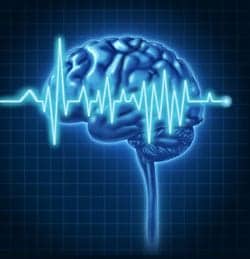
A news release notes that in a paper published 2 months prior, researchers also reported a strong link between blood levels of troponin T and NT-proBNP and symptomatic stroke. In the current study, researchers assessed the two biomarkers and “subclinical” asymptomatic events in the brain that are usually caused by a lack of blood flow. Combined, the papers indicate that the biomarkers may be effective in pinpointing patients who are likely to have mild brain disease and stroke well before the damage is done, according to Christie Ballantyne, MD, the Center for Cardiovascular Disease Prevention at The Methodist Hospital.
The release notes that in the subclinical brain disease study, researchers collected data from about 1,000 patient volunteers who agreed to have blood drawn and two MRI scans 11 years apart in order to search for silent brain infarcts and also white matter lesions (WMLs) caused by chronic inflammation. The researchers say that statistical analysis indicated a strong relationship between high NT-proBNP and the likelihood of brain infarcts and WMLs.
The results suggest that patients with the highest levels of NT-proBNP had as much as 3.5 times the number of brain infarcts as participants with low NT-proBNP levels, and more WMLs. Researchers add that patients with the highest levels of troponin T had as much as 3.0 times the number of brain infarcts and more WMLs.
The report appears in an upcoming issue of Stroke.
[Source: Methodist Hospital, Houston]



